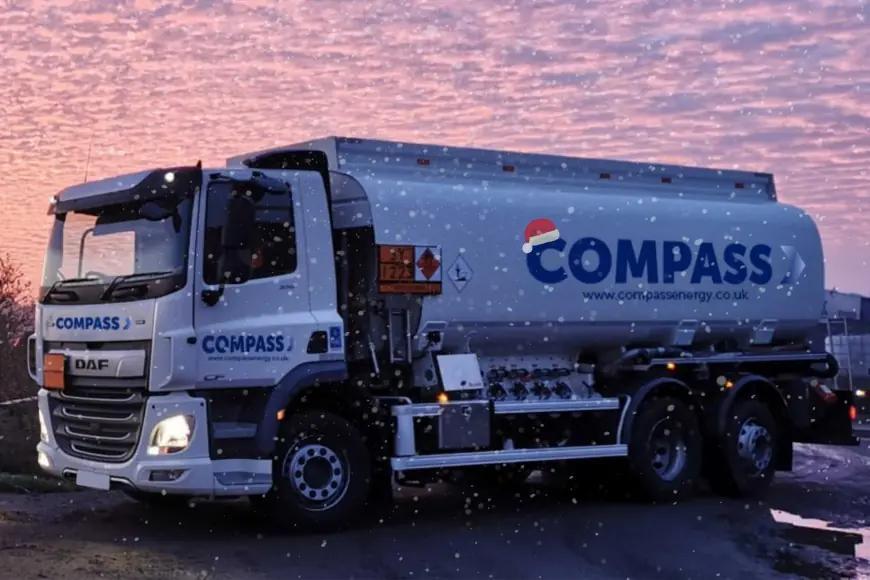Domestic Fuel Suppliers in the UK: Delivering Warmth and Reliability

Keeping homes warm and energy-efficient is a top priority for millions of households across the United Kingdom. While many are connected to the national gas and electricity grids, a significant number — particularly in rural and off-grid areas — depend on alternative energy sources for heating, cooking, and hot water. Domestic fuel suppliers are vital to ensuring these homes receive reliable, affordable, and timely access to essential fuels.
Understanding Domestic Fuel Supply
Domestic fuel suppliers provide a range of energy products directly to residential customers. These include:
-
Heating oil (kerosene): Used in oil-fired boilers for central heating and hot water.
-
LPG (liquefied petroleum gas): A versatile fuel used in homes for heating, cooking, and hot water.
-
Solid fuels: Including coal and wood, though these are now less common due to environmental regulations.
-
Biofuels: Renewable options like HVO (Hydrotreated Vegetable Oil) and bio-LPG are growing in popularity as sustainable alternatives.
These fuels are delivered and stored in tanks or cylinders on the homeowner's property, offering an off-grid solution that is essential for many rural communities.
Heating Oil: A Rural Essential
An estimated 1.5 million homes in the UK rely on heating oil, particularly in regions like Northern Ireland, the Scottish Highlands, and parts of Wales and South West England. Delivered by tanker and stored in external tanks, heating oil is a cost-effective and efficient way to heat homes in areas not served by the gas grid.
Suppliers offer:
-
Scheduled or automatic deliveries
-
Emergency top-ups in cold weather
-
Budget plans and fixed-rate contracts
-
Tank installation and monitoring services
Many suppliers now provide smart tank technology to alert customers and schedule refills automatically, ensuring they never run out.
LPG: A Flexible, Clean-Burning Fuel
LPG is another common fuel for UK homes, available in both bulk tanks and smaller gas cylinders. It’s often used for heating, cooking, and hot water and is valued for its cleaner-burning properties compared to coal or oil.
Domestic LPG suppliers provide:
-
Bulk tank installations
-
Cylinder delivery and exchange
-
Remote tank monitoring
-
Maintenance and safety checks
-
Carbon offsetting options
LPG is especially popular in semi-rural areas, where full gas grid access is limited but a cleaner energy source is preferred.
How to Choose a Domestic Fuel Supplier
With many fuel suppliers operating across the UK — from large national companies to local independents — choosing the right one depends on a few key factors:
-
Reliability: Timely deliveries are crucial, especially in colder months.
-
Customer service: Responsive support and flexible delivery options matter when dealing with heating needs.
-
Pricing: Compare prices, contracts, and delivery fees. Some suppliers offer capped or fixed-price plans for greater budget control.
-
Technology: Modern features like online ordering, automatic top-ups, and tank monitoring add convenience.
-
Sustainability: Increasingly important, many customers look for suppliers that offer renewable fuels or offset carbon emissions.
Comparison websites, local recommendations, and online reviews can help identify the most suitable supplier for your home and budget.
The Shift Toward Sustainability
As the UK moves towards its Net Zero 2050 goal, domestic fuel suppliers are evolving. Many now offer low-carbon and renewable options such as:
-
HVO (Hydrotreated Vegetable Oil): A biofuel that can reduce carbon emissions by up to 90%.
-
Bio-LPG: A renewable alternative to traditional LPG.
-
Carbon offsetting programs to balance emissions from fossil fuel use.
Government incentives and growing public awareness are pushing both suppliers and consumers to adopt greener solutions without compromising on comfort.
Conclusion
Domestic fuel suppliers in the UK provide an essential service to millions of households, particularly those living off the national gas grid. By delivering heating oil, LPG, and renewable alternatives, they ensure homes remain warm, functional, and energy-efficient. As the industry continues to innovate and adapt to environmental demands, these suppliers will play a key role in supporting both household comfort and the UK’s sustainable energy transition.
What's Your Reaction?
 Like
0
Like
0
 Dislike
0
Dislike
0
 Love
0
Love
0
 Funny
0
Funny
0
 Angry
0
Angry
0
 Sad
0
Sad
0
 Wow
0
Wow
0

















































